Find Help
More Items From Ergsy search
-

Can I ask my neighbour to reposition their security camera?
Relevance: 100%
-
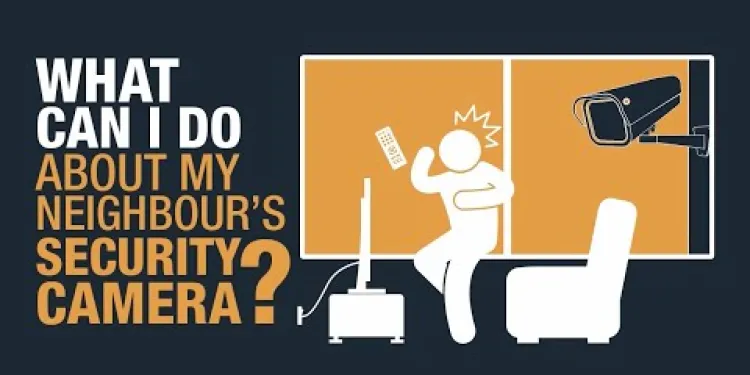
What can I do about my neighbour's security camera?
Relevance: 100%
-

What can I do about my neighbour's security camera?
Relevance: 98%
-

Is it legal for me to block the view of my neighbour's security camera?
Relevance: 98%
-
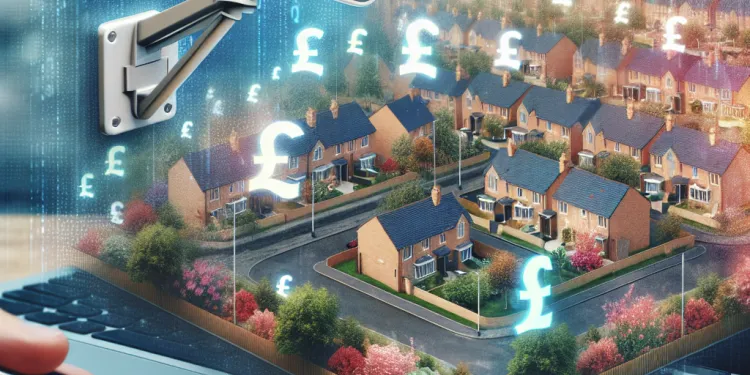
Is it legal for my neighbor to have a security camera facing my property?
Relevance: 94%
-
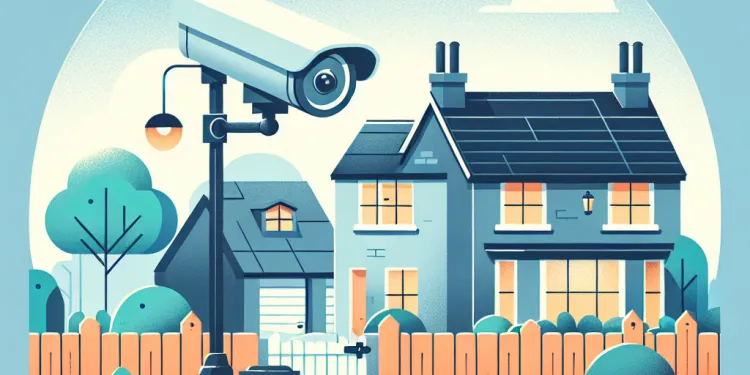
Can my neighbour legally point a security camera at my property?
Relevance: 94%
-
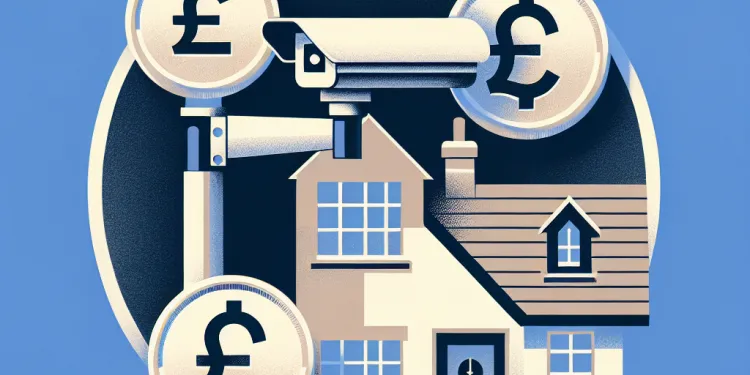
What if my neighbor claims the camera is for security but it points towards my property?
Relevance: 92%
-

How can I stop my neighbour's security camera pointing at my property?
Relevance: 91%
-
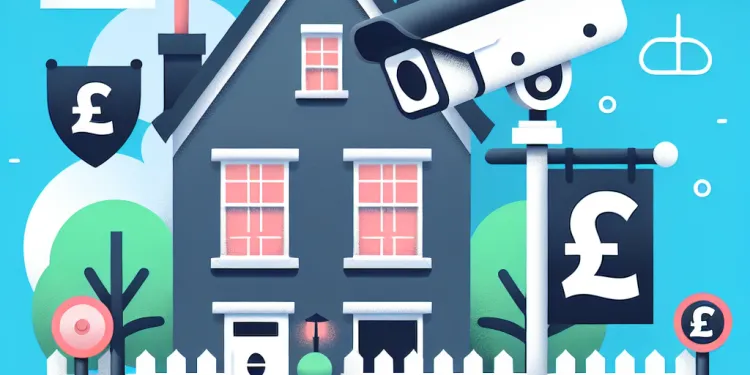
What steps can I take if my neighbour refuses to reposition their security camera?
Relevance: 90%
-
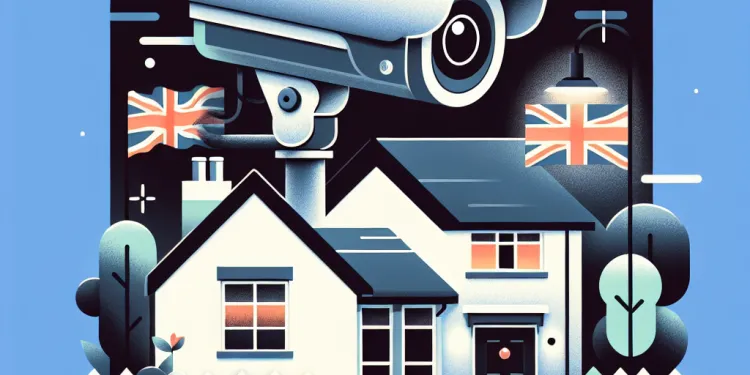
What should I do first if my neighbor's security camera is pointed at my property?
Relevance: 88%
-
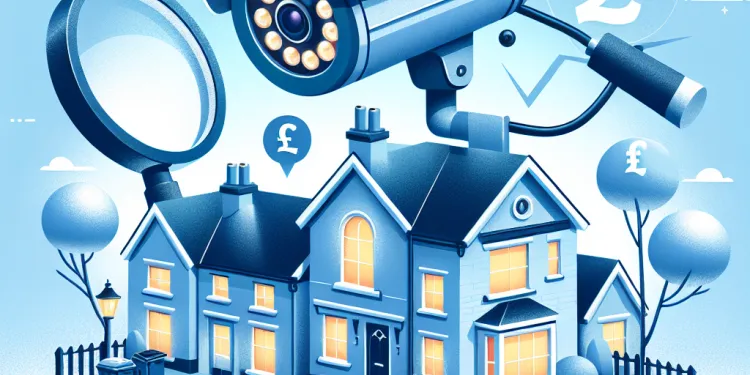
Can my neighbour use footage from their security camera as evidence in disputes?
Relevance: 81%
-
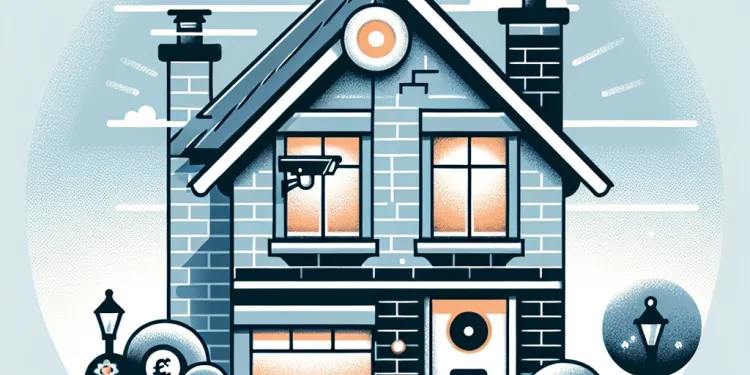
Do neighbours need to inform me if their cameras record my property?
Relevance: 78%
-

Are there privacy laws that protect me from neighbor's cameras?
Relevance: 78%
-

Can I block the view of my neighbor's camera with physical barriers?
Relevance: 74%
-

How can I disable my neighbour's security camera?
Relevance: 73%
-
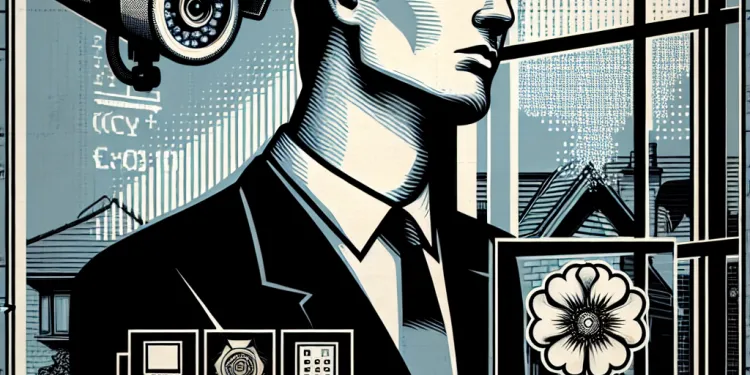
Should I contact the authorities if my neighbor refuses to adjust their camera?
Relevance: 73%
-
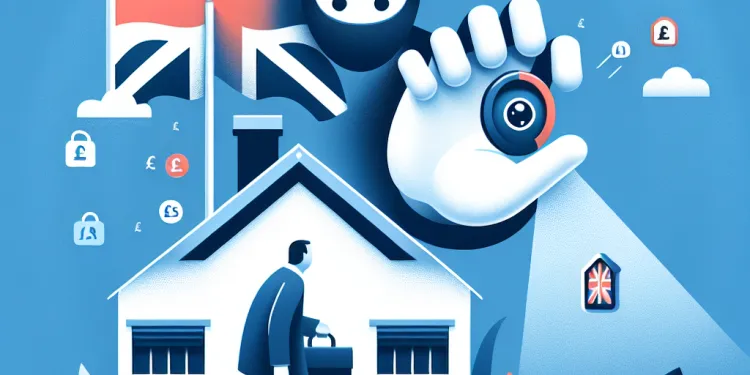
Can I ask for legal help to get my neighbor’s camera moved?
Relevance: 72%
-
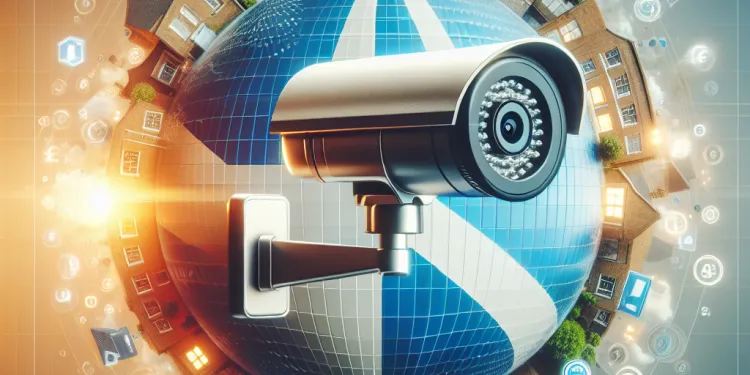
Is redirecting a security camera a solution?
Relevance: 72%
-

How can I tell if a security camera is pointing at my property?
Relevance: 72%
-

How secure is the Ring Doorbell Camera system?
Relevance: 63%
-
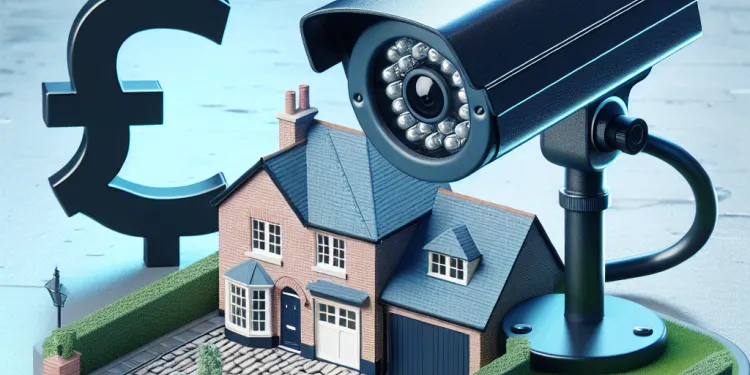
Is my concern valid if the camera is only monitoring my driveway?
Relevance: 63%
-
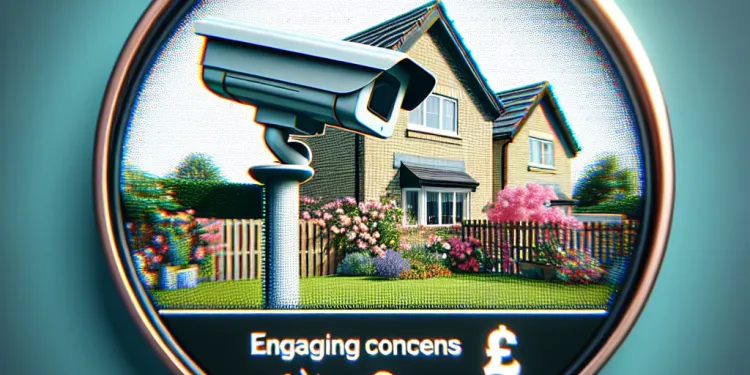
What should I do if I feel my privacy is being invaded by my neighbour's CCTV?
Relevance: 56%
-
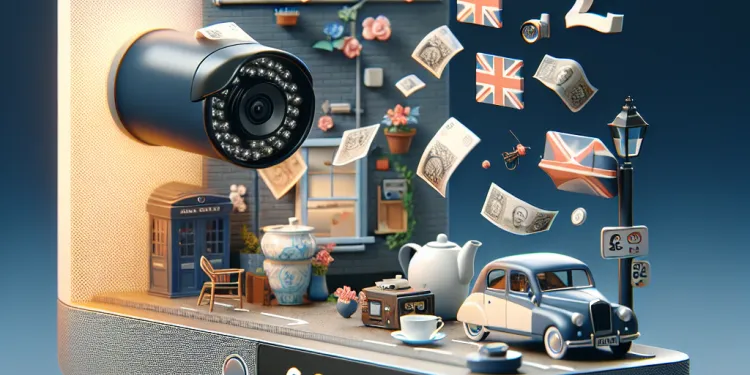
Can I install my own camera to monitor the area in question?
Relevance: 54%
-

Is it advisable to discuss camera placement before it becomes an issue?
Relevance: 51%
-

What laws apply to the use of security cameras in the UK?
Relevance: 50%
-
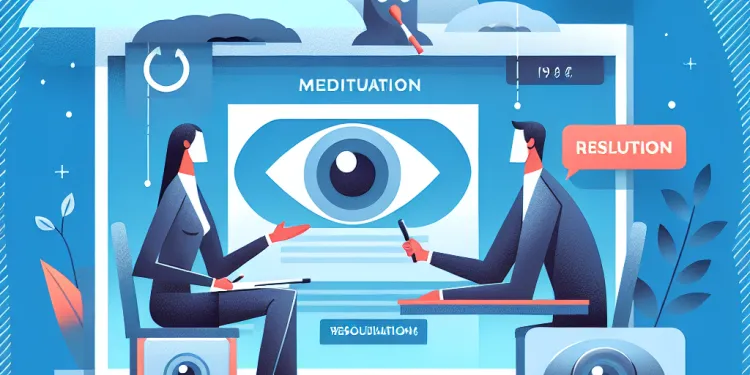
Are there any mediation services for resolving disputes over security cameras?
Relevance: 49%
-
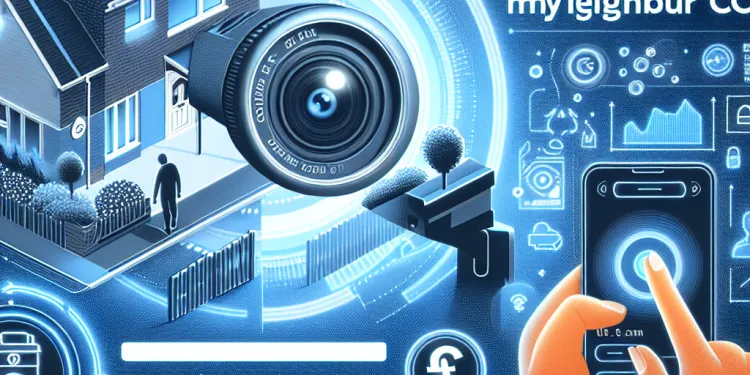
Can I request footage of myself from my neighbour's CCTV?
Relevance: 46%
-

What is my neighbour required to do under GDPR?
Relevance: 46%
-
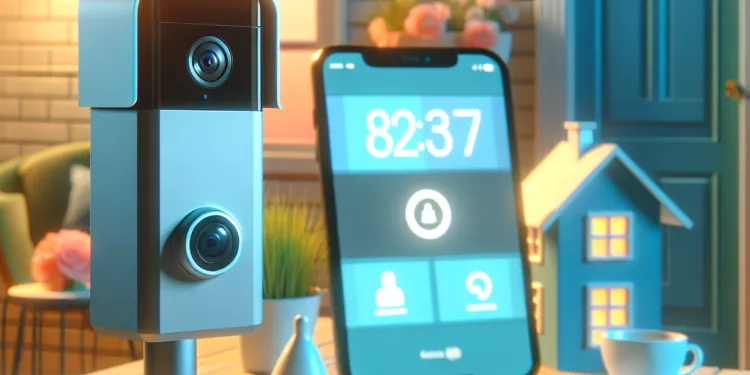
What happens if my Ring Doorbell Camera is stolen?
Relevance: 45%
-
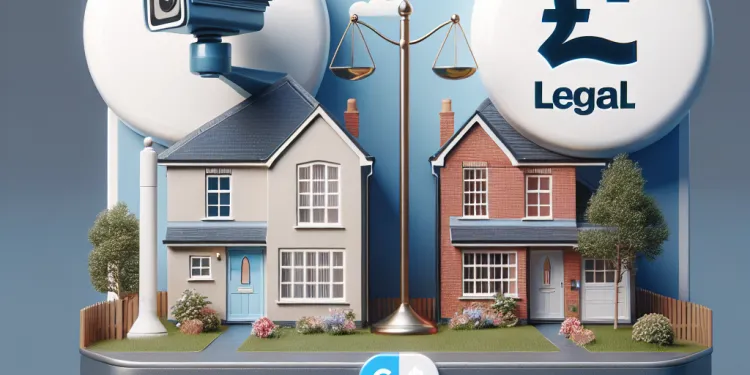
Can the police access my neighbour’s CCTV footage without consent?
Relevance: 45%
-

How do Ring Doorbell Cameras work?
Relevance: 43%
-

Is the video quality of a Ring Doorbell Camera good?
Relevance: 43%
-
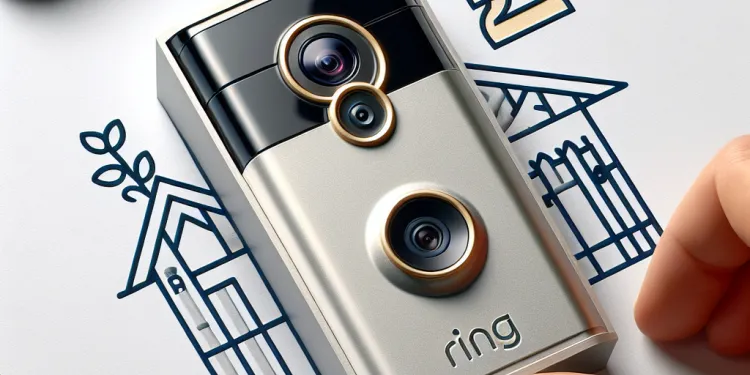
What is a Ring Doorbell Camera?
Relevance: 43%
-

Is it necessary to check on neighbors during a heatwave?
Relevance: 41%
-
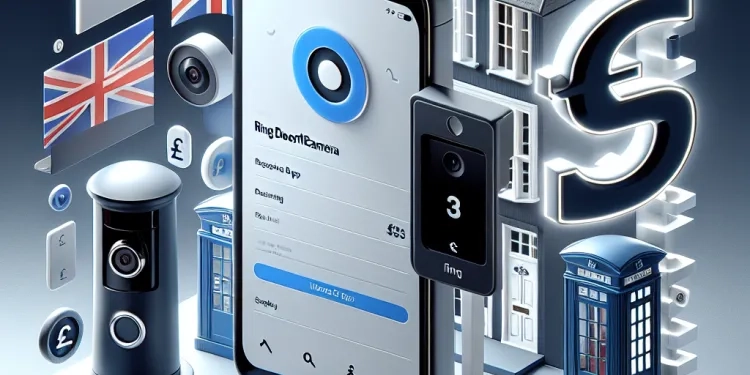
Is the Ring app necessary for using a Ring Doorbell Camera?
Relevance: 40%
-
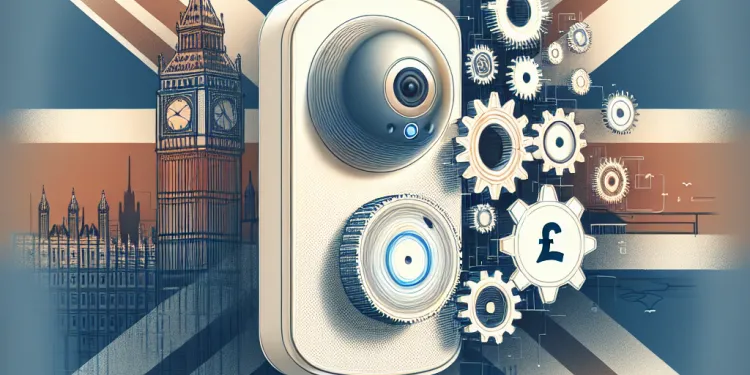
Can I customize motion detection on my Ring Doorbell Camera?
Relevance: 40%
-
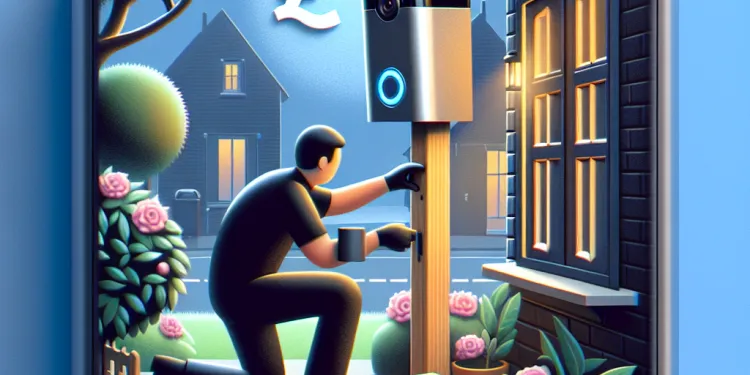
How do I install a Ring Doorbell Camera?
Relevance: 40%
-
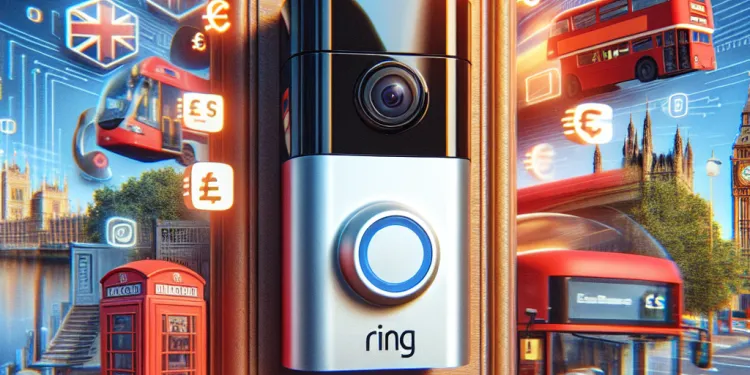
How does a Ring Doorbell Camera work?
Relevance: 40%
-
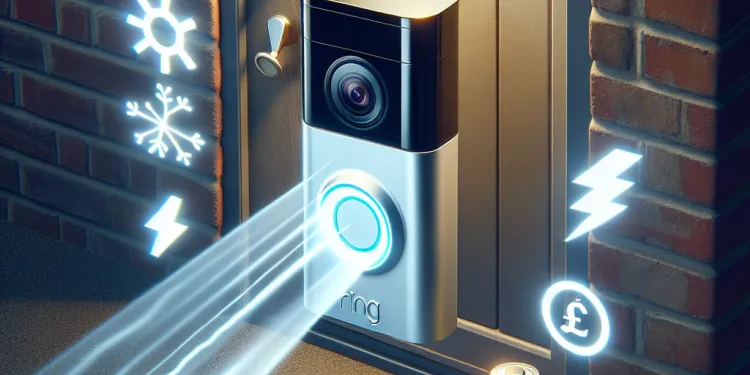
How does a battery-powered Ring Doorbell Camera work?
Relevance: 40%
-
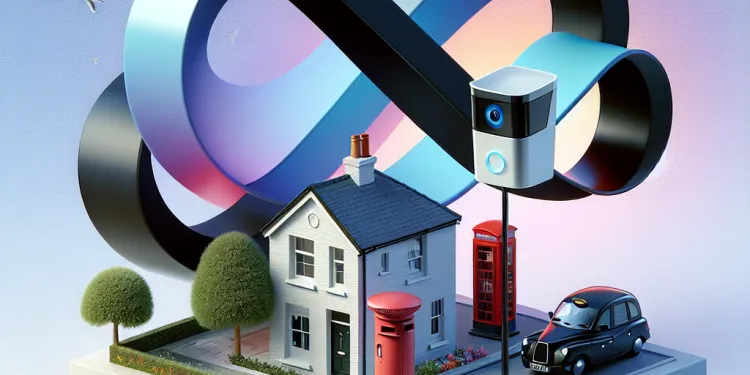
Can a Ring Doorbell Camera record continuously?
Relevance: 39%
Dealing with Your Neighbour's Security Camera
Understanding Your Rights
In the United Kingdom, everyone has a right to privacy under the Data Protection Act 2018 and the General Data Protection Regulation (GDPR). If your neighbour has a security camera that appears to be infringing upon your privacy, it's important to first understand your rights. Cameras should ideally be focused on the property they're intended to protect and not on your private space such as your back garden, windows, or doors.
Communicating with Your Neighbour
The first step is to have a friendly conversation with your neighbour. They might not be aware that their camera is capturing your property. Politely express your concerns and ask if they can adjust the angle of their camera to maintain your privacy. Often, problems like these can be resolved through simple communication.
Using Privacy Measures
If your neighbour is unwilling or unable to adjust their camera, you might consider installing privacy measures on your property. For example, you could put up a higher fence, use privacy screens, or plant tall shrubs that can obstruct the camera's view of your private areas. These measures can help shield your property without escalating tensions.
Seeking Legal Advice
If your neighbour's security camera continues to infringe on your privacy despite your efforts to resolve the matter amicably, you may need to seek legal advice. Under UK law, you can report this issue to the Information Commissioner's Office (ICO). The ICO can investigate and determine if the surveillance is excessive or unlawful.
Filing a Formal Complaint
If necessary, you can also contact your local council or housing association to file a formal complaint. They can provide guidance and potentially mediate the issue between you and your neighbour. Formal complaints should be considered as a last resort after all other methods have been exhausted.
Conclusion
Dealing with a neighbour's security camera can be challenging, but it's important to approach the situation calmly and reasonably. Understanding your rights, communicating effectively, and exploring privacy measures can often resolve the issue without conflict. If needed, legal avenues are available to protect your privacy.
Dealing with Your Neighbour's Security Camera
Understanding Your Rights
In the UK, you have the right to privacy. If your neighbour's camera is looking at your home or garden, this might be a problem. Cameras should only look at your neighbour's own property.
Talking to Your Neighbour
The first thing to do is talk to your neighbour nicely. They might not know their camera sees your place. Tell them how you feel and ask them to move the camera. Talking can often fix the problem.
Using Privacy Measures
If your neighbour cannot move the camera, you can try to make your home more private. You could put up a tall fence, use screens, or plant tall plants. These things can help block the camera.
Getting Legal Help
If the problem does not stop, you might need legal help. In the UK, you can talk to the Information Commissioner's Office (ICO). They can check if the camera is being used wrongly.
Making a Complaint
If needed, you can also talk to your local council or housing association. They can help solve the problem. This should be your last choice if nothing else works.
Conclusion
It can be hard to deal with a neighbour's camera. Stay calm and talk to your neighbour first. Use privacy tools for your home. If needed, get legal help to keep your privacy safe.
Frequently Asked Questions
Can my neighbour legally have a security camera?
Yes, your neighbour can legally install a security camera on their property for security purposes.
Can my neighbour's security camera point towards my property?
While it's legal for a camera to capture public areas, it should not infringe on your privacy by clearly focusing on your property, especially areas like your windows, garden, or private spaces.
What laws govern the use of security cameras in the UK?
The use of security cameras is governed by the Data Protection Act 2018 and the General Data Protection Regulation (GDPR).
What should I do if I feel my privacy is being invaded?
First, talk to your neighbour politely about your concerns. They might adjust the camera’s angle. If the issue persists, you can contact the Information Commissioner's Office (ICO) for guidance.
Can I report my neighbour's camera to the authorities?
Yes, if talking to your neighbour doesn't resolve the issue, you can report it to your local council or the ICO.
Is there a legal requirement for neighbours to put up signs if they have security cameras?
Yes, if the camera system records areas beyond their property, they should inform people they are being recorded, usually by putting up clear signs.
Can I install a camera to monitor my neighbour’s security camera?
While you can install a security camera on your property, retaliating with another camera pointed at your neighbour might escalate the situation and could lead to disputes.
What are my rights if my neighbour's camera records audio?
Recording audio is more intrusive than video and is generally considered excessive under data protection laws. You can ask them to disable audio recording.
Can I ask my neighbour to show me the footage they have captured?
You can request to see the footage, but your neighbour is not legally obligated to show it to you unless it has captured you specifically and the footage is used against you.
What are the ICO guidelines for domestic CCTV use?
The ICO guidelines recommend that cameras should not record more footage than necessary, should avoid capturing your neighbours' private areas, and should inform people they are being recorded.
Can my neighbour share the footage from their security camera with others?
No, footage should not be shared without a legitimate reason. Sharing can potentially breach data protection laws.
Can I take legal action if my neighbour refuses to adjust their camera?
If your privacy concerns are not addressed, you may seek legal advice and consider taking civil action on grounds of harassment or invasion of privacy.
Are wireless security cameras subject to the same laws as wired systems?
Yes, regardless of being wireless or wired, security cameras that capture data are subject to the same data protection laws.
How can I confirm if my neighbour’s camera is recording?
Politely ask your neighbour if the camera is recording and how it operates. Alternatively, visible signs like a glowing LED indicator can suggest the camera is active.
Where can I get more information about privacy and CCTV laws?
For detailed information, you can visit the Information Commissioner's Office (ICO) website or consult your local Citizens Advice Bureau.
Is it okay for my neighbour to have a security camera?
Your neighbour might have a security camera to watch their home.
If you are worried about the camera, you can:
- Talk to your neighbour. Ask them what the camera can see.
- See if it looks at your house or garden.
- Ask someone you trust to help you if you feel unsure.
Tips:
Use a friend or family member to talk to your neighbour if you are nervous. You can also write down your thoughts before talking. This helps you remember what to say.
Yes, your neighbor can put up a security camera on their property to help keep their home safe.
Can my neighbor's camera look at my house?
Cameras can film places everyone can see, like streets or parks. But they should not look at your personal space, like your windows, garden, or other private areas.
What are the rules for using security cameras in the UK?
Security cameras are watched by rules. These rules are called the Data Protection Act 2018 and GDPR.
What to Do if Someone is Invading Your Privacy
If you feel like someone is bothering you or looking at your private things without asking, here are some steps to help you:
- Tell Someone You Trust: Talk to a family member, friend, or teacher. They can help you.
- Use Calm Words: If you feel safe, tell the person how you feel. Say, "I don’t like it when you do that."
- Move Away: Go to a place where you feel safe and comfortable.
- Ask for Help: Use a phone or device to call for help if you need it.
- Write It Down: Keep a note of what happened and when. This can help if you talk to someone about it later.
You can use tools like a notebook or a phone to write down what happens. Remember, your feelings are important!
First, talk to your neighbour nicely about your worries. They might change where the camera points. If it doesn’t get better, you can ask the Information Commissioner’s Office (ICO) for help.
Can I tell someone about my neighbour's camera?
If you are worried about your neighbour's camera, you can tell someone about it. Here are some steps:
- Talk to an adult you trust. They can help you decide what to do.
- If you feel uncomfortable, you can tell the police or a local community helper.
Using a phone with voice-to-text can help you explain what makes you worried. You can also write it down and ask someone to help you read it.
If talking to your neighbor does not fix the problem, you can tell your local council. You can also tell the ICO.
Do neighbours have to put up signs if they have security cameras?
If your neighbours have cameras, they might need to tell you. Sometimes, the law says they should use signs. Here are some things to help you understand:
- Ask a grown-up to explain any big words.
- Look for signs near their house.
- Use a computer to find out more about security camera rules.
Yes, if the camera sees places outside their own property, they should tell people they are on camera. They can do this by putting up signs that everyone can see easily.
Can I put up a camera to watch my neighbor’s security camera?
If you want to know about cameras, here are some ideas:
- Ask first: Talk to your neighbor. See if it’s okay with them.
- Why? Think about why you want to watch their camera.
- Rules: Check local laws about cameras.
Get help:
- Ask a parent, friend, or teacher to help you understand.
- Use tools like a voice reader to help read tricky words.
You can put a safety camera at your home. But if you point another camera at your neighbor, it might cause problems and make things worse.
What can I do if my neighbor's camera listens to me?
If your neighbor's camera is recording sounds, you have some choices:
- Talk: You can ask your neighbor to stop the sound recording. Be polite and clear.
- Help: You can ask someone to help you talk to your neighbor.
- Write: You can write a letter to your neighbor explaining how you feel.
- Advice: You can ask an adult or a community helper for advice.
Tools that might help:
- Friend or Family: Ask someone you trust to assist you.
- Community Helper: Get help from someone like a community officer.
- Internet Resources: Look online for help on privacy rights.
Recording sound is often seen as more intrusive than recording video. Many rules about protecting personal information think recording sound is too much. You can ask them to stop recording sound.
Can I ask my neighbor to show me the video they recorded?
If your neighbor has cameras, you can ask them to see the video.
Be polite when you ask.
They might say yes, but they can also say no.
Try using simple words and be friendly.
You can ask to see the video, but your neighbor does not have to show it to you unless you are in the video and it is used against you.
If you find reading hard, try using audio books or apps that read text out loud. They can help you understand better.
What are the ICO rules for using CCTV at home?
The ICO has rules that tell you how to use CCTV cameras at your home. Here is how you can understand and follow these rules easily:
- Keep it Private: Make sure your camera only watches your own home or garden, not other people’s houses or gardens.
- Tell People: Put up a sign to let people know they are being recorded by the camera.
- Use it Fairly: Only keep videos that are important, and do not film things you do not need to.
- Keep it Safe: Save video records carefully and delete them when you do not need them anymore.
If you want to learn more about these rules, you can ask someone to help explain or look for information on the ICO website using easy words.
The ICO rules say that cameras should only record what is needed. They should not record your neighbours' private spaces. People should know if they are being recorded.
Can my neighbor show their security camera videos to other people?
No, you should not share videos unless you have a good reason. Sharing them can break the law about keeping people’s information private.
Can I get help if my neighbor won't move their camera?
If your neighbor's camera is bothering you, you can ask someone for help to sort it out.
Here are some things you can do:
- Talk to your neighbor and tell them how you feel.
- Ask a friend or family member to come with you and help you talk.
- Write a letter to your neighbor explaining the problem.
- If you still need help, you can talk to a community helper or advisor.
Remember, it's okay to ask for help when you need it.
If you are still worried about your privacy, you can talk to a lawyer. You might take legal steps if someone is bothering you or invading your privacy.
Do wireless security cameras follow the same rules as wired cameras?
This question is asking if wireless cameras and wired cameras have to follow the same laws. "Laws" are rules made by the government. These laws help keep everyone safe.
Tools to help understand: - Use simple drawings or diagrams to show how cameras work. - Find videos that explain camera rules in a fun way.
Yes, all security cameras that take pictures or videos have to follow the same rules. This is true whether they use wires or not.
How can I know if my neighbour's camera is recording?
Here is how to check if a camera is on:
- Look for a small red or green light on the camera. This light means it is recording.
- You can ask your neighbour if their camera is on.
- Use a flashlight to find the camera. Shine the light at the camera lens to see a small reflection if it is recording.
- If you have trouble understanding, ask someone for help, like a parent, teacher, or friend.
Tools that can help:
- Binoculars to see the camera better from far away.
- A phone or tablet to take a picture, so you can look at it closely later.
Ask your neighbor nicely if the camera is recording and how it works. You can also look for a light on the camera. This light can show if the camera is on.
Where can I learn about privacy and CCTV rules?
If you want to know more, you can go to the Information Commissioner's Office (ICO) website. You can also ask for help at your local Citizens Advice Bureau.
Useful Links
This website offers general information and is not a substitute for professional advice.
Always seek guidance from qualified professionals.
If you have any medical concerns or need urgent help, contact a healthcare professional or emergency services immediately.
- Ergsy carfully checks the information in the videos we provide here.
- Videos shown by Youtube after a video has completed, have NOT been reviewed by ERGSY.
- To view, click the arrow in centre of video.
- Most of the videos you find here will have subtitles and/or closed captions available.
- You may need to turn these on, and choose your preferred language.
- Go to the video you'd like to watch.
- If closed captions (CC) are available, settings will be visible on the bottom right of the video player.
- To turn on Captions, click settings .
- To turn off Captions, click settings again.
More Items From Ergsy search
-

Can I ask my neighbour to reposition their security camera?
Relevance: 100%
-

What can I do about my neighbour's security camera?
Relevance: 100%
-

What can I do about my neighbour's security camera?
Relevance: 98%
-

Is it legal for me to block the view of my neighbour's security camera?
Relevance: 98%
-

Is it legal for my neighbor to have a security camera facing my property?
Relevance: 94%
-

Can my neighbour legally point a security camera at my property?
Relevance: 94%
-

What if my neighbor claims the camera is for security but it points towards my property?
Relevance: 92%
-

How can I stop my neighbour's security camera pointing at my property?
Relevance: 91%
-

What steps can I take if my neighbour refuses to reposition their security camera?
Relevance: 90%
-

What should I do first if my neighbor's security camera is pointed at my property?
Relevance: 88%
-

Can my neighbour use footage from their security camera as evidence in disputes?
Relevance: 81%
-

Do neighbours need to inform me if their cameras record my property?
Relevance: 78%
-

Are there privacy laws that protect me from neighbor's cameras?
Relevance: 78%
-

Can I block the view of my neighbor's camera with physical barriers?
Relevance: 74%
-

How can I disable my neighbour's security camera?
Relevance: 73%
-

Should I contact the authorities if my neighbor refuses to adjust their camera?
Relevance: 73%
-

Can I ask for legal help to get my neighbor’s camera moved?
Relevance: 72%
-

Is redirecting a security camera a solution?
Relevance: 72%
-

How can I tell if a security camera is pointing at my property?
Relevance: 72%
-

How secure is the Ring Doorbell Camera system?
Relevance: 63%
-

Is my concern valid if the camera is only monitoring my driveway?
Relevance: 63%
-

What should I do if I feel my privacy is being invaded by my neighbour's CCTV?
Relevance: 56%
-

Can I install my own camera to monitor the area in question?
Relevance: 54%
-

Is it advisable to discuss camera placement before it becomes an issue?
Relevance: 51%
-

What laws apply to the use of security cameras in the UK?
Relevance: 50%
-

Are there any mediation services for resolving disputes over security cameras?
Relevance: 49%
-

Can I request footage of myself from my neighbour's CCTV?
Relevance: 46%
-

What is my neighbour required to do under GDPR?
Relevance: 46%
-

What happens if my Ring Doorbell Camera is stolen?
Relevance: 45%
-

Can the police access my neighbour’s CCTV footage without consent?
Relevance: 45%
-

How do Ring Doorbell Cameras work?
Relevance: 43%
-

Is the video quality of a Ring Doorbell Camera good?
Relevance: 43%
-

What is a Ring Doorbell Camera?
Relevance: 43%
-

Is it necessary to check on neighbors during a heatwave?
Relevance: 41%
-

Is the Ring app necessary for using a Ring Doorbell Camera?
Relevance: 40%
-

Can I customize motion detection on my Ring Doorbell Camera?
Relevance: 40%
-

How do I install a Ring Doorbell Camera?
Relevance: 40%
-

How does a Ring Doorbell Camera work?
Relevance: 40%
-

How does a battery-powered Ring Doorbell Camera work?
Relevance: 40%
-

Can a Ring Doorbell Camera record continuously?
Relevance: 39%


